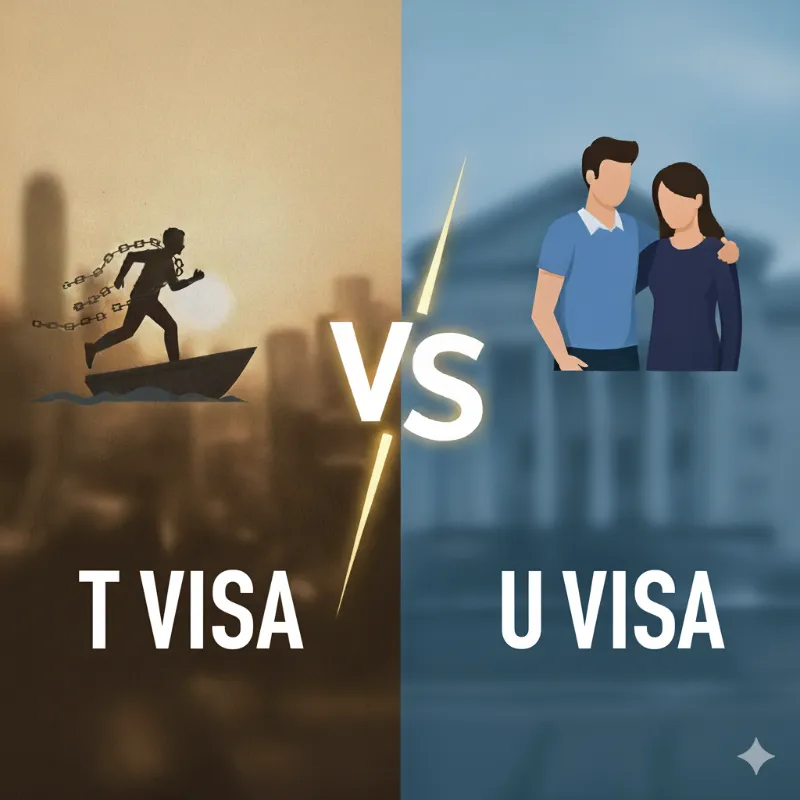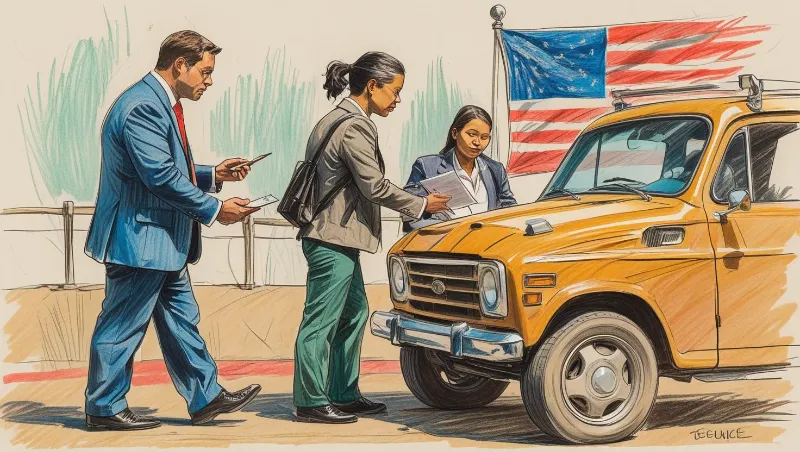Marriage Green Card Interview can feel like the final hurdle in your immigration journey, but don’t worry, it’s not designed to trick you or catch you off guard. It’s simply a way for U.S. Citizenship and Immigration Services (USCIS) to confirm that your marriage is genuine, or “bona fide,” as they call it in immigration law. (For more details on proving a bona fide marriage, check out our previous article l Green Card Application : How to Prove a Bona-Fide Marriage)
This post will explain what to expect during your green card interview, how to prepare, and what questions might come your way whether you’re in the U.S. going through Adjustment of Status or abroad with Consular Processing. Let’s make sure you walk in feeling confident and prepared.

What Is a Marriage Green Card Interview?
Simply put, the green card interview is a face-to-face meeting with a USCIS officer (if you’re in the U.S.) or a consular officer at the U.S. Embassy or Consulate (if you’re abroad). The goal is to assess whether your marriage is real and wasn’t entered into just for immigration purposes.
Where Does the Marriage Green Card Interview Happen?
In the U.S.: If you’re applying for Adjustment of Status (you’re already in the U.S.), your interview will take place at your local USCIS office. You’ll attend the interview together with your spouse, and both of you will answer questions about your relationship, living situation, and daily life.
Outside the U.S.: If your spouse is abroad and you’re applying through Consular Processing, the interview will take place at a U.S. Embassy or Consulate. The structure is largely the same, but one key difference is that the sponsoring spouse is usually not required to attend this interview.
While the setting may differ, the process and the questions asked are pretty similar. In both cases, the interviewer is trying to assess the legitimacy of your marriage.
How The Marriage Green card Interview Does It Work?
After your initial application is submitted and reviewed, USCIS will schedule your interview. It’s typically one of the final steps in the green card process, and it’s your chance to prove that your marriage is genuine.
This interview isn’t just a formality it’s an important step in getting your green card. The officer will ask a series of questions to both you and your spouse. The goal? To see if your answers line up and whether your relationship seems authentic.
When Does the Interview Happen?
For Adjustment of Status cases, you’ll typically be called in for an interview about 9 to 12 months after filing your green card application. But here’s a bonus: We’ve seen cases where people were called in as quickly as two months after filing their application! In some instances, applicants weren’t even called for an interview at all because the paper evidence submitted was so convincing that USCIS felt confident making a decision without one.
In Consular Processing cases, your interview happens after the embassy or consulate receives your application. The interview timing will depend on the backlog at the embassy.
The Top 20 Questions to Prepare For
To help you get ready, here are some common questions that may come up during the interview
- Where did you meet your spouse?
- When and where did you get married?
- How did you celebrate your wedding?
- What did you do on your first date?
- What are your spouse’s favorite hobbies?
- Where do you live now, and what is your living arrangement like?
- How do you split household responsibilities?
- Do you have any children together?
- What is your spouse’s job, and where do they work?
- How does your spouse get to work?
- Do you have any joint bank accounts?
- What kind of car does your spouse drive?
- Who are your spouse’s close friends or family members?
- What are your spouse’s parents’ names?
- What time does your spouse usually wake up in the morning?
- Who does the cooking at home?
- What was the last vacation you took together?
- Do you celebrate holidays together? How?
- Who pays the bills in your household?
- What is something that annoys your spouse?
What Happens If You Don’t Know the Answer?
If you don’t know the answer to a question, don’t panic! It’s completely normal not to remember every little detail. Just be honest. For example, if you can’t recall what your spouse had for breakfast three days ago (because, honestly, who could?), just say so. The interviewer is judging your overall compatibility and the authenticity of your relationship not your ability to memorize trivia.
Imagine this scenario: If you blank on something minor, like what your spouse’s favorite ice cream flavor is, it’s no big deal. But if you can’t remember where your spouse works or you give conflicting stories about where you live, that’s when red flags might go up.
So, What Is the Interviewer Really Judging?
The officer isn’t trying to trip you up. They’re simply assessing whether your marriage feels natural and real. Do your stories line up? Do you genuinely know and care about each other? The interviewer is judging your relationship as a whole, not just individual answers.
The Bottom Line
The marriage green card interview can feel intimidating, but it doesn’t have to be. Just relax, be honest, and remember that the interview aims to confirm what you already know that your marriage is real. When you and your spouse stay prepared and work together, you’ll handle this with confidence.
We always encourage people to book a consultation with us, so that we can do some interview prep ahead of the day. It is important for you to feel confident.






